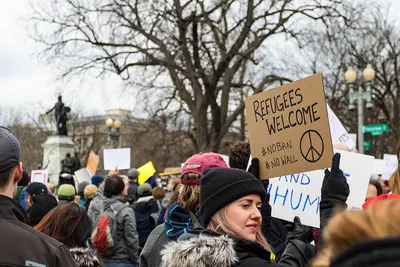Principles of Political Economy: Philosophy & Politics (PH338)
Philosophy deals with what’s possible; politics with what’s practical. However, can we really get a handle on either of these areas without thinking about the other? Addressing many of the contemporary problems we face requires both a detailed understanding of political realities, on the one hand, and ethical analysis and philosophical reasoning, on the other. This year we will explore how the two disciplines can complement each other by looking closely at three interconnected topics: (i) global poverty and inequality, (ii) climate change and (iii) migration.
Global Poverty and Inequality. Many of the world's population live in gruelling poverty. This raises many philosophical and political questions: Do the affluent have duties to eradicate global poverty? Is there a human right not to suffer poverty? People's standard of living varies enormously between countries. Is global inequality unjust? Is there nothing unjust about global inequalities so long as everyone is above a decent minimum?
Climate Change. A second major challenge facing humanity is climate change. This too raises complex philosophical and political questions. One of the key questions is: Who should pay the costs of climate change, and how? How do we distribute those costs fairly across actors separated in space and time? A further question is whether these responsibilities are borne only by governments? Or do we, as individuals, have duties to lower our own greenhouse gas emissions?
Migration. The changes to the environment will also lead to increasing climate change refugees: up to 200 million by mid-century (according to some estimates). Do these individuals have a right to migrate? More generally, is there a human right to free movement? Alternatively, do states have rights to exclude migrants? If they do, are there limits on their rights? Must they, for example, accept some, (such as refugees), even if they can exclude others?
Suppose that states fail to comply with their duties to others, (for example, they impose unjust immigration or climate policies or fail to honour duties to the global poor), what should others do? Should other states take up extra responsibilities? Can those who bear the brunt of injustice engage in acts of civil disobedience?
Understanding these issues requires combining your understanding of politics with the tools of philosophy. By the end of this module you will have a firm understanding of a set of contemporary political problems and how thinking them through philosophically deepens our understanding.
Learning Outcomes or Aims
By the end of the module you will be able to: comprehend and critically analyse complex arguments from the literature of contemporary political theory, international ethics and environmental policy; provide an account of your considered judgements about the issues discussed, taking account of a variety opposing arguments and perspectives; think rigorously and independently about the relevant issues; construct your own sustained argument about the issues covered, and defend it against sceptics, using arguments from other disciplines where appropriate; apply themes from the course to topical social and political issues and current news coverage to develop philosophically informed political positions.
Contact Time
In this module students attend a 2 hour of lectures per week, beginning in week 1, and a 1 hour seminar, beginning in week 2.
Assessment Methods
This module is formally assessed in the following ways:
- 15% 1500-word assessed essay
- 85% Examination (2 hour in Term 3)
CATS
This module is worth 15 CATS.

